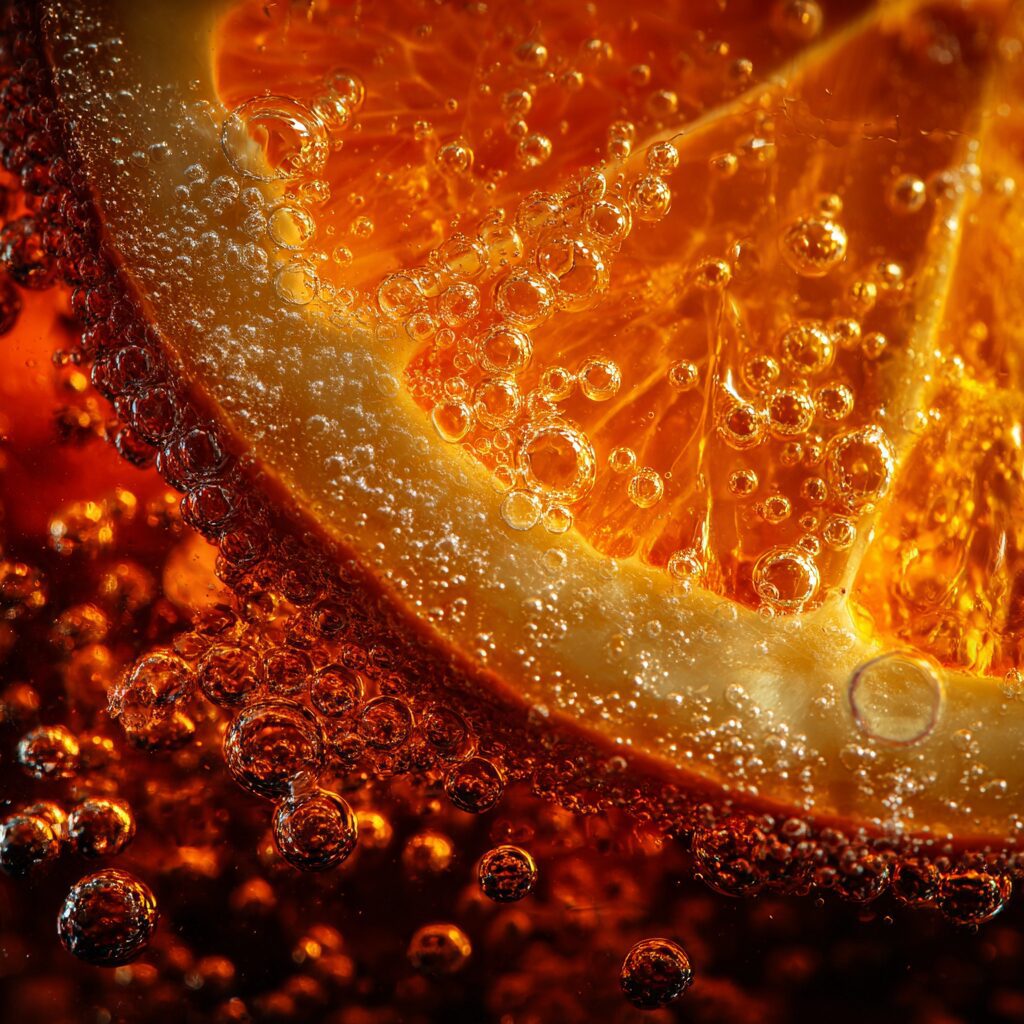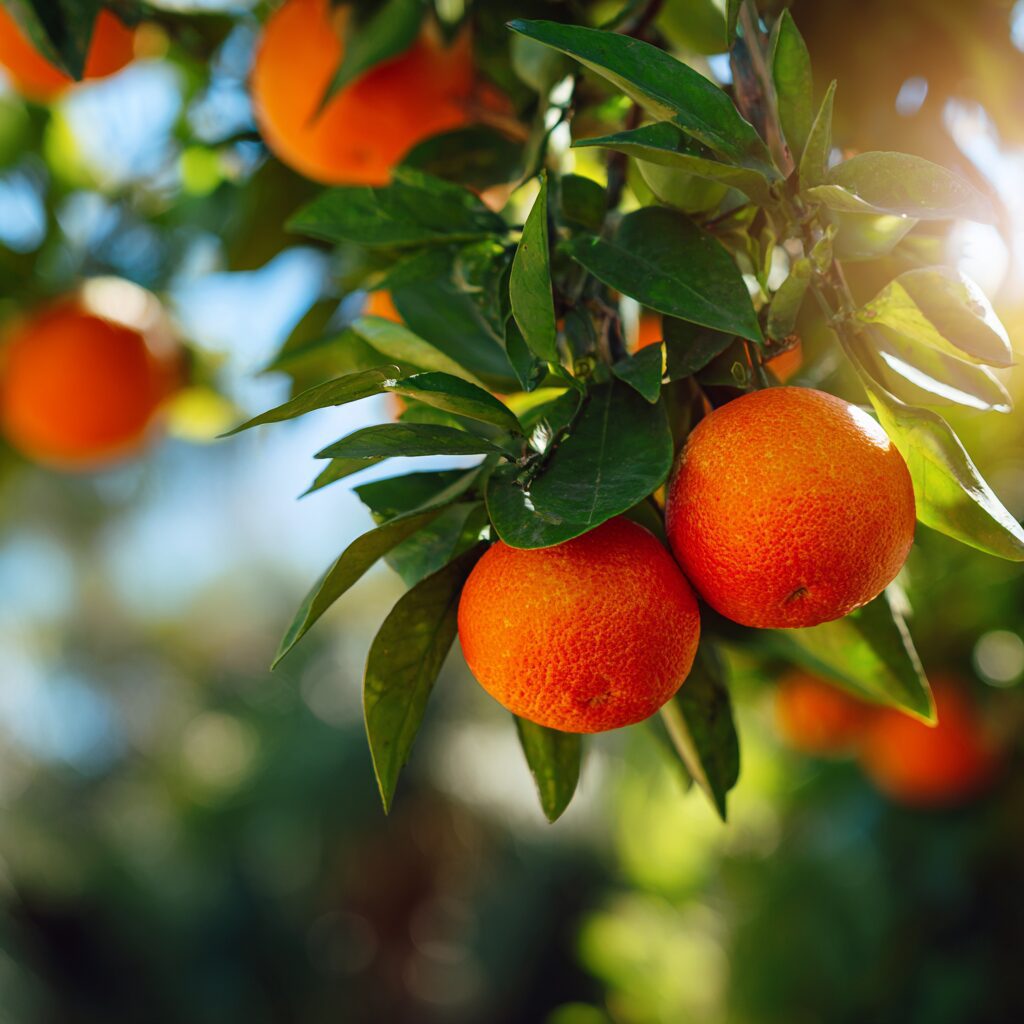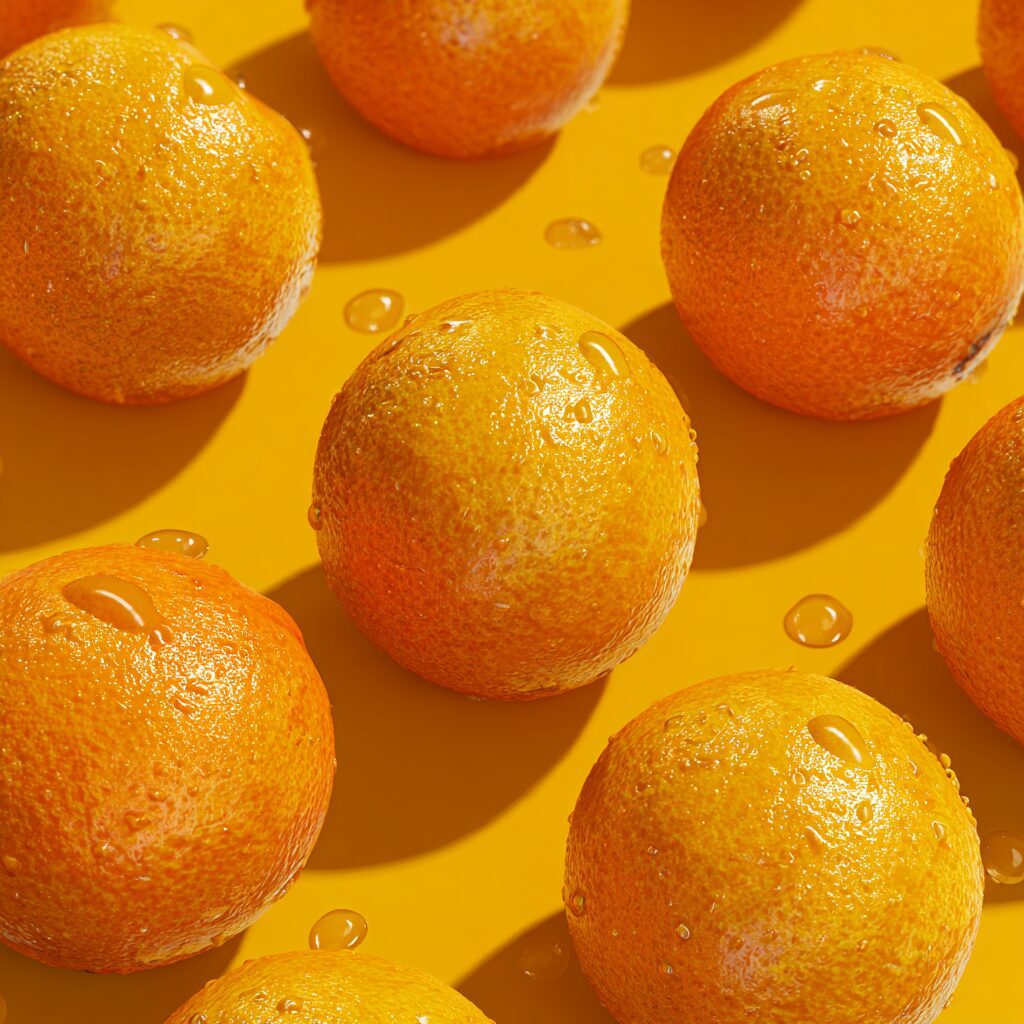Why Citrus Orange is Suited for Degreasing

In the world of industrial and household cleaning, few natural substances can match the degreasing power of citrus orange. While many cleaning agents rely on harsh synthetic chemicals to cut through grease and oil, orange-based degreasers harness nature’s own chemistry to deliver exceptional results that often surpass traditional petroleum-based solvents. Understanding why citrus orange possesses such remarkable degreasing capabilities reveals the fascinating intersection of organic chemistry, sustainable manufacturing, and practical cleaning science.
The Chemical Foundation of Orange’s Degreasing Power
The extraordinary degreasing ability of citrus orange stems primarily from d-limonene, a naturally occurring monoterpene that comprises approximately 90-95% of orange peel oil. This remarkable compound, with its molecular formula C₁₀H₁₆, possesses a unique combination of chemical properties that make it exceptionally effective at dissolving oils, fats, and greasy residues.
D-limonene’s molecular structure consists of a cyclohexene ring with an isopropyl group, creating a compound that exhibits both polar and non-polar characteristics. This dual nature allows it to interact effectively with a wide range of grease types, from animal fats to synthetic oils. The compound’s relatively low molecular weight and specific geometric arrangement enable it to penetrate grease matrices quickly and efficiently, breaking down the intermolecular forces that hold greasy deposits together.
The extraction process for d-limonene from orange peels typically involves cold-pressing, which preserves the compound’s natural properties while avoiding the chemical alterations that can occur with heat-based extraction methods. This preservation of natural characteristics ensures that the degreasing properties remain at their peak effectiveness while maintaining the compound’s inherent biodegradability and low toxicity.
The Science of Grease Dissolution
Grease presents unique cleaning challenges because of its molecular composition and physical properties. Most greases consist of long-chain hydrocarbons, triglycerides, and various organic compounds that resist water-based cleaning attempts. Traditional water and soap combinations often struggle with heavy grease because water molecules cannot effectively penetrate the hydrophobic grease barrier.
Citrus orange overcomes this challenge through the principle of “like dissolves like” in chemistry. Since both d-limonene and most greases are organic, carbon-based compounds, they exhibit natural molecular affinity. When d-limonene contacts grease, it penetrates the greasy matrix and disrupts the van der Waals forces and hydrogen bonds that hold the grease together. This molecular-level interaction causes the grease to swell and soften, making it substantially easier to remove through mechanical action or rinsing.
Unlike harsh chemical solvents that work through aggressive chemical reactions, d-limonene works through physical dissolution and emulsification. This gentler mechanism means that while the grease is effectively broken down, the underlying surfaces remain unharmed, making citrus orange ideal for delicate equipment, painted surfaces, and materials that might be damaged by aggressive chemical degreasers.

Superior Performance Across Grease Types
One of the most remarkable aspects of citrus orange’s degreasing capability is its effectiveness across a broad spectrum of grease types. Animal fats, which contain saturated and unsaturated fatty acids, respond excellently to d-limonene treatment. The natural solvent properties of orange oil can break down even rendered fats and cooking greases that have solidified or become baked onto surfaces.
Petroleum-based greases, commonly found in automotive and industrial applications, also yield readily to citrus orange treatment. Despite their synthetic origins, these greases share enough molecular characteristics with d-limonene to allow effective dissolution. This makes citrus degreasers particularly valuable in mechanical applications where traditional petroleum solvents were once considered the only viable option.
Synthetic oils and modern lubricants, including those based on polyalphaolefins and synthetic esters, present unique challenges for many cleaning agents. However, d-limonene’s versatile molecular structure allows it to interact effectively with these engineered compounds, often outperforming specialized synthetic degreasers while offering superior safety and environmental profiles.
Advantages Over Traditional Degreasers
Citrus orange offers several compelling advantages over traditional petroleum-based and synthetic degreasers that extend beyond mere cleaning effectiveness. The safety profile of d-limonene represents a significant improvement over harsh chemical alternatives, with lower toxicity levels and reduced risk of respiratory irritation or skin sensitization. This enhanced safety makes citrus degreasers suitable for use in food service environments, residential applications, and industrial settings where worker safety is paramount.
The environmental benefits of citrus degreasers align with modern sustainability goals while maintaining industrial-grade cleaning performance. D-limonene biodegrades naturally without leaving harmful residues in soil or water systems, making it an environmentally responsible choice for facilities concerned about their ecological impact. The renewable source of citrus oil also supports sustainable manufacturing practices, as the raw materials come from agricultural waste that would otherwise be discarded.
Performance consistency represents another significant advantage of citrus orange degreasers. While petroleum-based solvents can vary in effectiveness depending on their specific formulation and source crude oil characteristics, d-limonene provides consistent degreasing performance regardless of the orange variety or geographic origin. This reliability is crucial for industrial applications where consistent results are necessary for quality control and operational efficiency.

Industrial Applications and Effectiveness
Manufacturing environments benefit tremendously from citrus orange’s degreasing capabilities, particularly in applications where equipment cleanliness directly impacts product quality. Food processing facilities use citrus degreasers to maintain sanitary conditions while avoiding the introduction of toxic residues that could contaminate products. The natural origin and GRAS (Generally Recognized As Safe) status of d-limonene make it particularly suitable for these sensitive applications.
Automotive and aerospace industries have increasingly adopted citrus degreasers for parts cleaning and maintenance operations. The effectiveness of orange-based solvents in removing hydraulic fluids, gear oils, and assembly lubricants rivals that of traditional solvents while offering improved worker safety and environmental compliance. The ability to clean precision components without leaving harmful residues makes citrus degreasers ideal for critical applications where contamination could compromise performance or safety.
Printing and manufacturing operations use citrus degreasers to clean ink residues, adhesives, and process oils from equipment and products. The solvent strength of d-limonene effectively dissolves these materials while being gentle enough to avoid damaging delicate machinery or finished surfaces. This versatility reduces the need for multiple specialized cleaning products, simplifying inventory management and reducing operational costs.
Household and Commercial Kitchen Applications
Restaurant and commercial kitchen environments present some of the most challenging degreasing scenarios, with combination of food oils, animal fats, and high-temperature cooking residues creating stubborn, multilayered grease deposits. Citrus orange degreasers excel in these environments, effectively cutting through accumulated grease on range hoods, fryers, grills, and other cooking equipment.
The natural antibacterial properties of citrus oils provide an additional benefit in food service applications, helping to reduce microbial contamination while cleaning. This dual action of degreasing and sanitizing makes citrus cleaners particularly valuable in environments where hygiene standards are critical. The pleasant, natural fragrance also helps eliminate cooking odors rather than masking them with artificial scents.
Household applications benefit from citrus orange’s gentle yet effective degreasing action, particularly in kitchens where family safety is a primary concern. The ability to effectively clean stovetops, ovens, and cooking utensils without introducing toxic chemicals into food preparation areas makes citrus degreasers ideal for residential use. The natural origin and biodegradable characteristics also align with the preferences of environmentally conscious consumers.

Technical Advantages and Performance Characteristics
The technical performance of citrus orange degreasers often surprises users accustomed to harsh chemical alternatives. The penetrating ability of d-limonene allows it to work effectively on both fresh and aged grease deposits, with older, hardened grease often requiring only slightly longer contact times to achieve complete removal. This penetrating power is particularly valuable for maintenance applications where grease has accumulated over extended periods.
Temperature stability represents another technical advantage of citrus degreasers, with d-limonene maintaining its effectiveness across a wide range of operating temperatures. Unlike some synthetic solvents that become less effective at lower temperatures or potentially hazardous at elevated temperatures, citrus orange maintains consistent performance characteristics across normal operating ranges.
The compatibility of citrus degreasers with various materials and surfaces exceeds that of many traditional alternatives. While harsh chemical solvents can damage plastics, rubber seals, painted surfaces, and certain metals, d-limonene typically exhibits excellent material compatibility. This broad compatibility reduces the risk of equipment damage and expands the range of applications where citrus degreasers can be safely used.
Economic and Operational Benefits
The economic advantages of citrus orange degreasers extend beyond simple product costs to include operational benefits that can significantly impact total cleaning expenses. The effectiveness of citrus degreasers often allows for reduced application quantities compared to less effective alternatives, stretching product usage and reducing per-use costs. Additionally, the ability of single citrus degreaser formulations to handle multiple types of grease and soil reduces inventory requirements and simplifies procurement processes.
Maintenance cost reductions represent another significant economic benefit, as the gentle nature of citrus degreasers helps extend equipment life by avoiding the corrosive effects of harsh chemical alternatives. This gentler action on surfaces and components can result in reduced maintenance requirements and longer service intervals for cleaned equipment.
Worker productivity benefits from the improved safety profile and pleasant working conditions created by citrus degreasers. Reduced requirements for protective equipment, better air quality, and elimination of harsh chemical odors contribute to more comfortable working conditions and potentially reduced safety-related downtime.
Future Developments and Innovations
Research into enhancing citrus orange’s degreasing capabilities continues to yield improvements in effectiveness and application versatility. Scientists are exploring methods to increase d-limonene concentration in extraction processes while maintaining cost-effectiveness and environmental benefits. Additionally, research into combining citrus oils with other natural compounds is producing synergistic effects that further enhance degreasing performance.
Nanotechnology applications are being investigated to improve the penetration and effectiveness of citrus degreasers, potentially allowing for even more efficient grease dissolution and removal. These technological advances could further expand the applications where citrus degreasers can compete with or exceed the performance of traditional synthetic alternatives.
Formulation improvements continue to enhance the practical aspects of citrus degreaser use, including better stability, improved shelf life, and enhanced compatibility with automated cleaning systems. These developments make citrus degreasers increasingly attractive for large-scale industrial applications where consistency and reliability are paramount.

Addressing Limitations and Optimization
While citrus orange exhibits exceptional degreasing capabilities, understanding its limitations helps optimize application and ensure realistic expectations. Extremely heavy grease deposits or specialized industrial compounds may require pre-treatment or combination approaches to achieve optimal results. However, these limitations are often offset by the safety and environmental advantages that citrus degreasers provide.
Surface sensitivity considerations, while minimal compared to harsh chemical alternatives, still require attention with certain materials. Some plastics, rubber compounds, and specialty coatings may be affected by prolonged exposure to concentrated citrus oils. Proper testing and appropriate dilution help ensure safe application across all intended surfaces.
Time requirements for citrus degreasing may be longer than some synthetic alternatives, particularly for heavily soiled surfaces. However, this extended contact time often results in more thorough cleaning and reduced need for mechanical scrubbing, ultimately saving labor and reducing surface wear.
Conclusion
The unique suitability of citrus orange for degreasing applications stems from a remarkable combination of natural chemistry, practical effectiveness, and operational advantages that position it as a superior alternative to traditional synthetic degreasers. The molecular characteristics of d-limonene provide exceptional grease dissolution capabilities while maintaining safety profiles and environmental benefits that align with modern industrial and consumer requirements.
As industries continue to prioritize worker safety, environmental responsibility, and operational efficiency, citrus orange degreasers represent an optimal solution that delivers on all these requirements without compromising cleaning effectiveness. The natural origin, renewable sourcing, and biodegradable characteristics of citrus degreasers support sustainable operations while the proven degreasing performance ensures that operational requirements are fully met.
The future of degreasing technology increasingly points toward natural, sustainable solutions that can match or exceed the performance of traditional synthetic alternatives. Citrus orange, with its unique combination of effectiveness, safety, and environmental benefits, stands at the forefront of this evolution, offering a glimpse into a future where industrial cleaning power and environmental responsibility work in perfect harmony.
